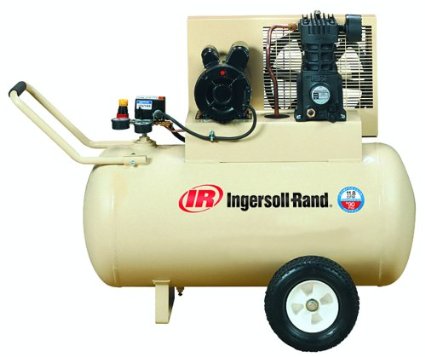Best Air Tools For Automotive Restoration
Article by Mark Trotta
Classic car restoration is very time-consuming, and having the right tools will save you time.
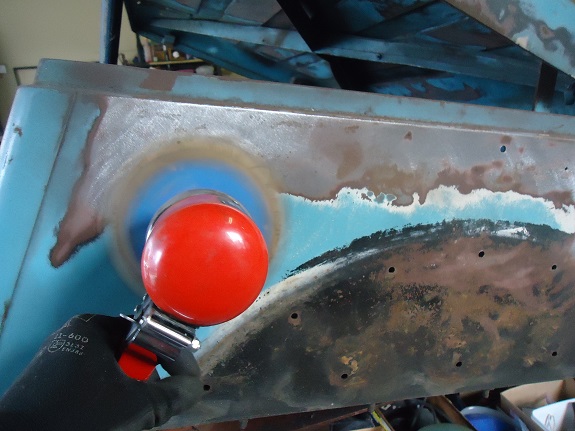
Everything is easier when you have the proper tools.
Air tools deliver higher torque and are far more powerful than traditional hand tools or electric-powered tools. They will decrease the amount of time and energy needed to finish the job at hand.
From my 35 years of experience, here's a review of the ten best air tools for automotive repair and restoration.
#1) Air Cut-off Tool
You can use tin-snips to cut sheet metal, and you can use a hacksaw to cut off a rusty bolt, but an air-powered cut-off wheel (a.k.a. whiz-wheel) is much, much faster.
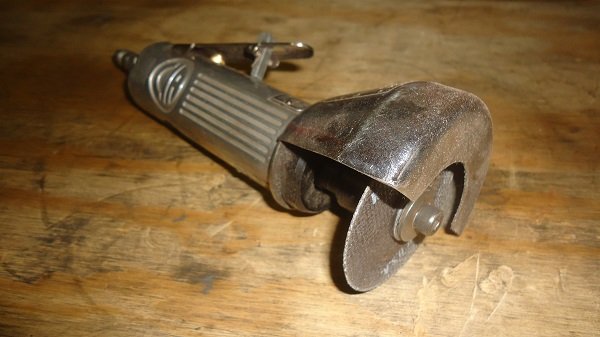
Shop: Cut-off Air Tool
TIP: While cutting, work slowly, letting the tool do the work. Do not force it to cut faster, as that will overheat the tool and the metal.
#2) Air Die Grinder
A die grinder has dozens of uses, including grinding rusty metal down to clean metal quickly. Both 2" or 3" pads and discs are common, and dozens of attachments are available. By changing the arbor on your die-grinder, it can serve as a cut-off wheel.
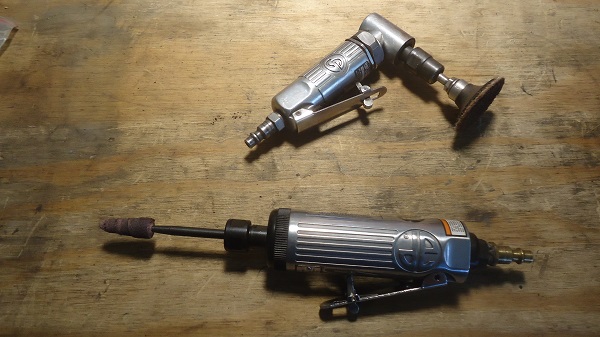
Shop: Air Die Grinder
Die grinders come in either straight or right-angle, and seem to have the shortest life-span of air tools. I keep one of each.
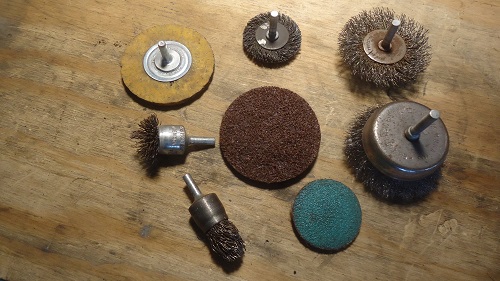
#3) Dual-Action Palm Sander
The D/A, or dual-action sander, is small and light and works at lower RPMs than other air tools. They have a dual orbital motion that helps prevent scratching.
Its primary use is to "feather", or fan out the area around a panel repair. 150 or 220-grit sandpaper is commonly used. When using a D/A sander, keep it flat to the surface and don't press down too hard. Let the sander do the work.
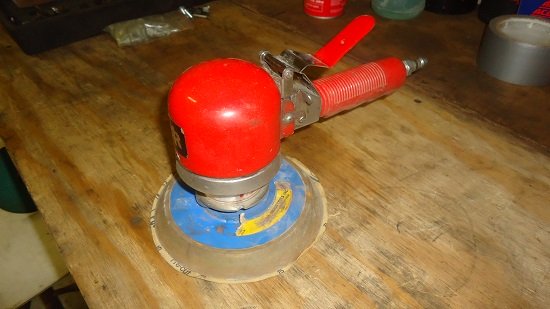
Shop: Dual-Action Sander
To remove the self-adhesive backing paper off the D/A sandpaper, I use a razor blade if there is no tab. Caution is always advised when handling a loose razor blade.
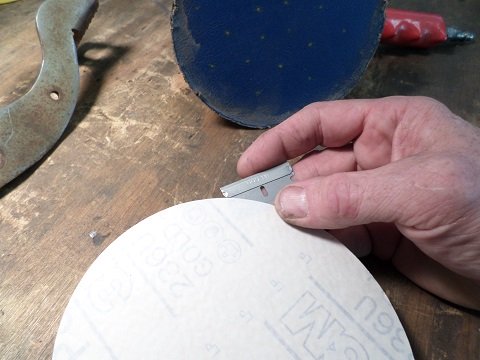
#4) Air Sander
Good quality air sanders have more power than electric sanders, and have a smoother action that won't fatigue your hands as quickly.
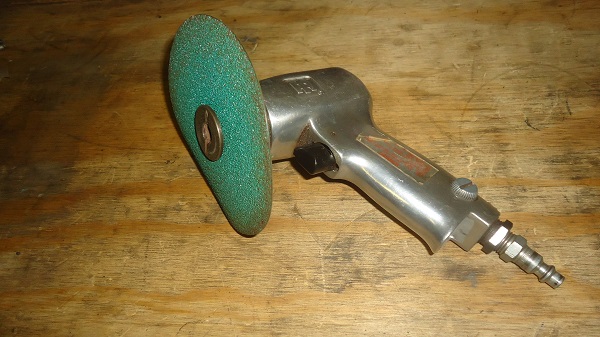
Shop: Five-Inch Air Sander
Because they work at higher RPMs without the orbital motion of a D/A sander, air sanders make quick work of paint removal and grinding down welds. Caution: they can also warp/damage sheet metal, so they need to be used with finesse.
#5) Air Drill
An air drill enables you to drill holes in sheet metal without running out of power or getting the drill hot. Be careful though, air drills run so fast that you may have a hard time starting a pilot hole.
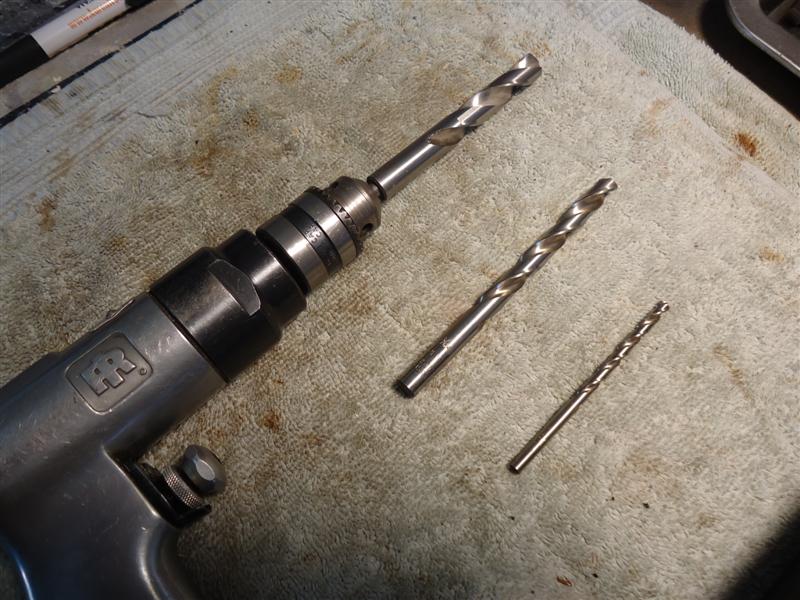
Shop: 3/8" Air Drill
An air drill was particularly helpful when removing original rivets from Corvette brake rotors.
****************************
Ear Protection
Most air tools are very noisy. I often wear hearing protection while running them.
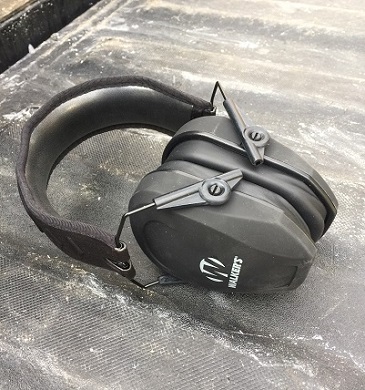
You can still hear outside sounds while wearing ear muffs, but they will be much softer. What they will do is dampen noises down to a lower level.
****************************
#6) Air Hammer
The life-saver...the miracle worker...the old "Billy Baroo". I bought this Ingersoll Rand 117 air hammer somewhere back in the nineties, and continues to get me out of more jams than any other air tool.
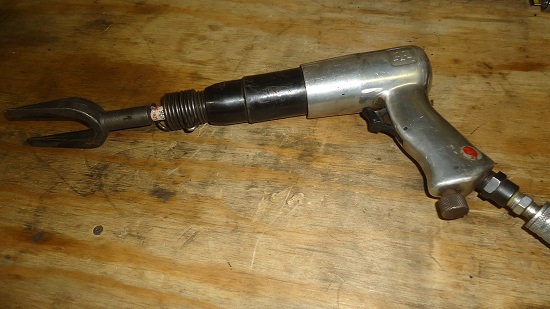
Shop: Air Hammer for Automotive
An air hammer's many uses include separating spot-welded body panels, removing tie rods from center links, and vibrating the heck out of stubborn nuts and bolts until they separate. Having an assortment of chisel heads makes them invaluable for automotive restoration.
#7) Air Ratchet
If you need to disassemble an entire motor quickly, you need an air ratchet. Impact guns can only fit in so many places, but air ratchets fit in a lot more.
Shop: 3/8" Air Ratchet
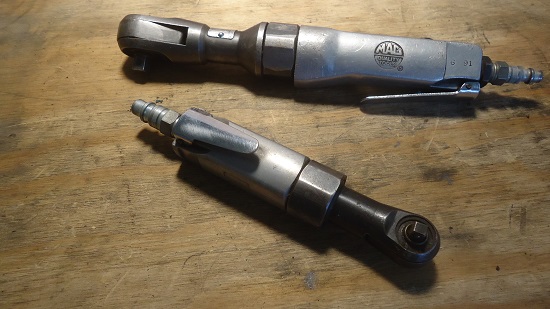
Shop: 1/4" Air Ratchet
To me, the smaller 1/4" air ratchet is most useful. Not only will it fit into places hand ratchets can't, it delivers the necessary torque to remove that stubborn nut or bolt.
#8) Air Reciprocating Saw
Unlike a Sawzall or Portaband, an air saw is not an ideal cut-off tool. It's primarily for sheet metal, but can be used to cut off stubborn bolts. However, an air saw is much more compact than a Sawzall or Portaband, so it can be used in close quarters, such as cutting out a rusty floorboard. They're also ideal for fiberglass, carbon fiber, and very small detail cuts.
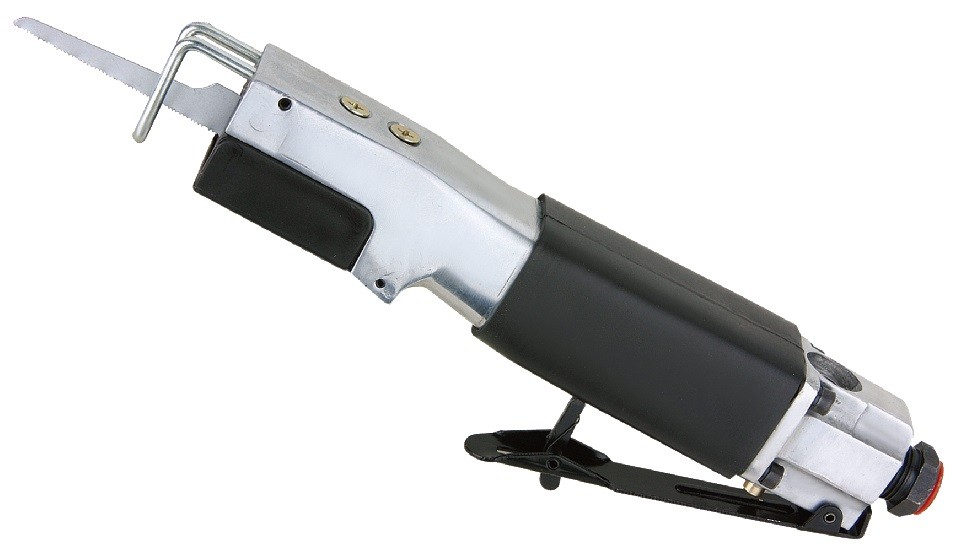
Shop: Air Reciprocating Saw
When fitted with fine-tooth blades, an air saw will make very fine, clean cuts. It also removes less material than a cut-off wheel.
#9) Paint Gun
Although I use a turbine spray system when I paint an entire car, I also have a small siphon-feed spray gun for tight quarters and small panels. It's also good for motorcycle gas tanks and fenders.
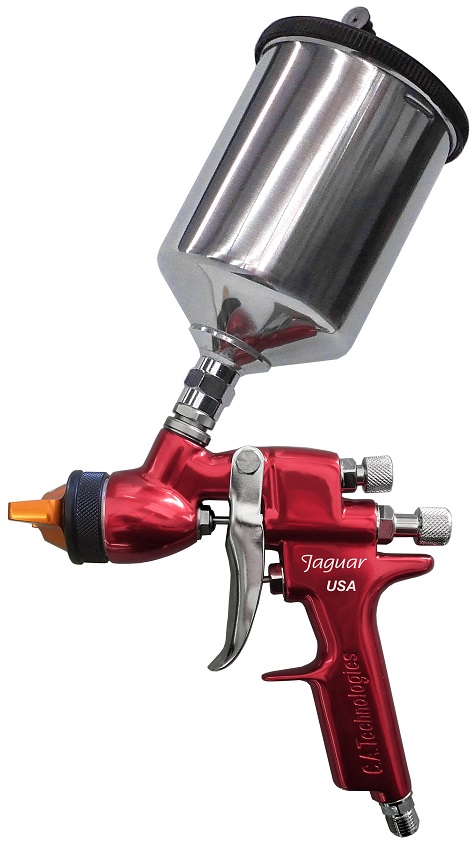
Read: Best Spray Gun For DIY Car Restoration
#10) Air Blow Gun
The many uses of an air blow-gun include cleaning fuel lines, blowing away filings and metal chips, cleaning spark plugs, etc. I use mine quite often for drying metal panels and parts before painting. Get one with a rubber tip, it'll prevent you from accidentally scratching something.
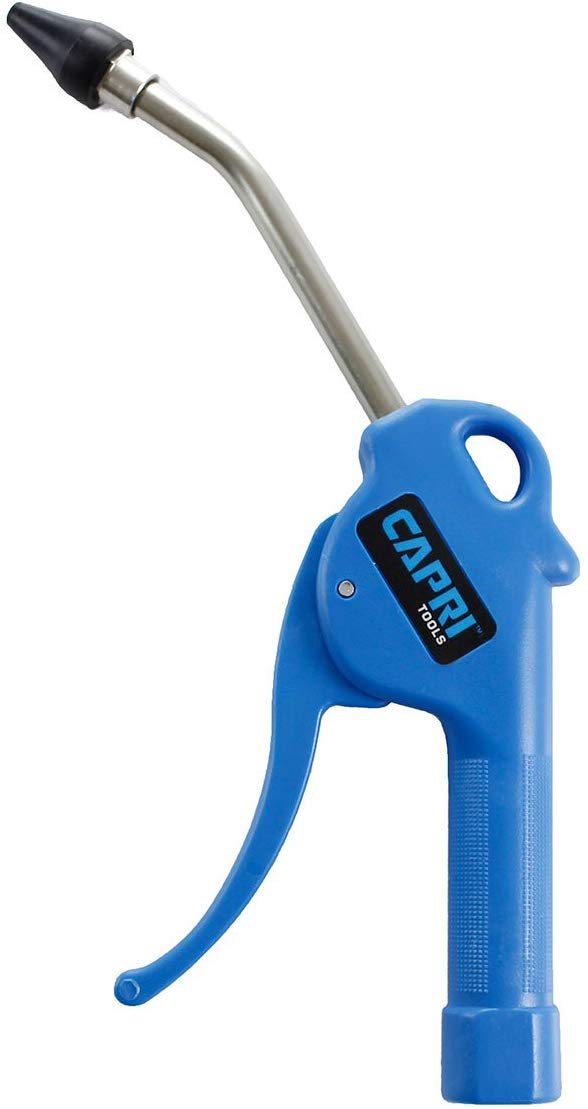
Shop: Air Blow Gun with Rubber Tip
Air Tool Maintenance
Having outlined the best air tools for automotive repair and restoration, a final word about maintenance. Even with a filter/regulator, moisture from an air compressor gets through the hose and can contaminate them. Adding a bit of oil before and after every use prolongs the life of your air tools.
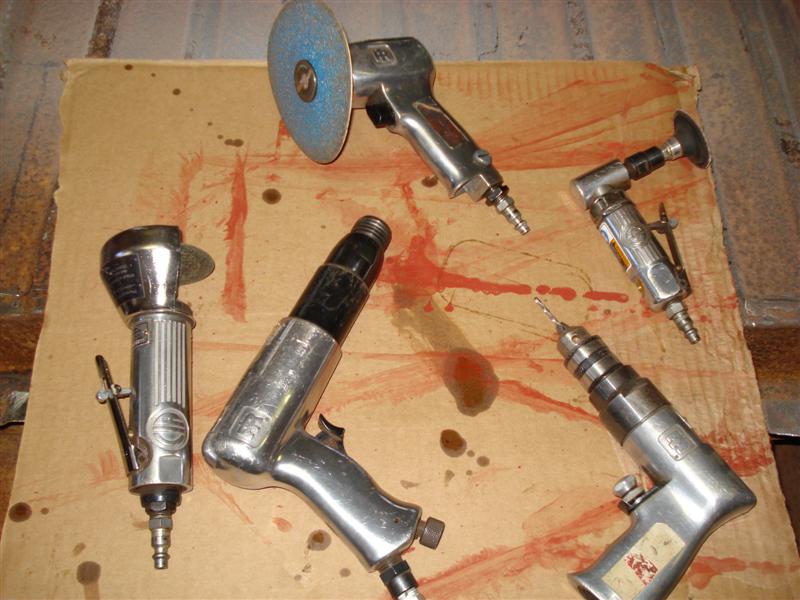
Lucas air tool oil is thick, clear, and has no smell. I add a few drops of it into each air tool before and after each use.
Although in-line oilers look effective, I've never used them. Several companies, including DeVilbiss, offer short desiccant hoses. These have an inline air filter to help removes dirt, oil and water.
Like other shop equipment, air tools are an investment, so buy quality name brands when you can. Some of my air tools are over 20 years old, and work just as well today as when I bought them.

After you're done with your garage session, you can use a blow-gun attachment to clean up your shop area.
Safety Concerns
When operating air-powered tools, eye protection is essential. Also recommended are a dust mask or respirator. And since they can be quite loud, ear protection is also worth considering.
CFM Requirements For Air Tools
- 1/4" Ratchet: 2.5-3.5 CFM
- 3/8" Ratchet: 4.5-5 CFM
- Air Hammer: 3-11 CFM
- Mini Die Grinder: 4-6 CFM
- Cut-Off Tool: 4-10 CFM
- 7" Angle Disc Grinder: 5-8 CFM
- Dual-Action Sander: 11-13 CFM
****************************
Related Articles:
Best Angle Grinder For Automotive
Angle Grinder Attachments For Automotive Repair
Best Tool For Cylinder Head Work
